Devographics created the 2023 State of CSS survey to identify upcoming trends and developments in the web development ecosystem and assist development professionals in making better technological and career choices.
Keeping Abreast of the Changes in CSS
CSS has been undergoing significant changes. Largely driven by changing web development needs and demands.
From the rise of CSS frameworks like Bootstrap to advanced layout techniques like Flexbox becoming the norm for creating responsive layouts, to the focus on CSS variables, change is never that far in CSS and in web development.
Browser vendors use the data obtained from this survey (part of the Interop initiative) to help prioritise important features to work on next.
As a UK-accredited professional certification company with experience helping people upskill and reskill for coding careers, we’ve outlined the insights and findings from this survey we believe matter for developers, tech professionals, enthusiasts, and really anyone interested in tech and this career path.
How Was This Survey Designed, and Who Is the Audience?
The survey is an annual research project and is solely about collecting information from the web development community relating to how CSS is used and perceived.
This year, demographic information includes:
- Country or region where participants reside.
- Most Spoken Languages.
- Typical Ages Of Respondents.
Country and Region
The UK landed in third position, behind the U.S.A and Germany, for most developers who responded.
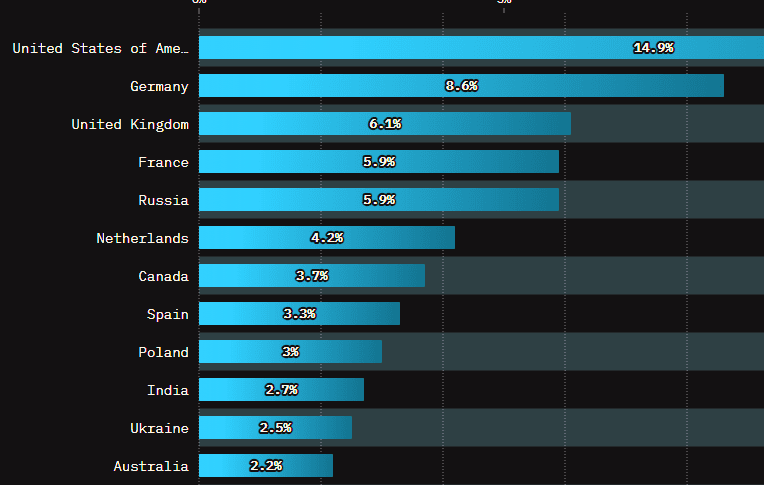
Languages Spoken By Survey Respondents

CSS Frameworks Preferred by Developers This Year
- Tailwind CSS
- Bootstrap
- Materialise CSS
- Ant Design
- PureCSS
- Bulma
- Foundation
The Different Ways CSS Is Being Used
The survey reveals that developers use CSS in various ways. However, ensuring code works across all browsers remains a key focus for many.
Preferred Testing Environments
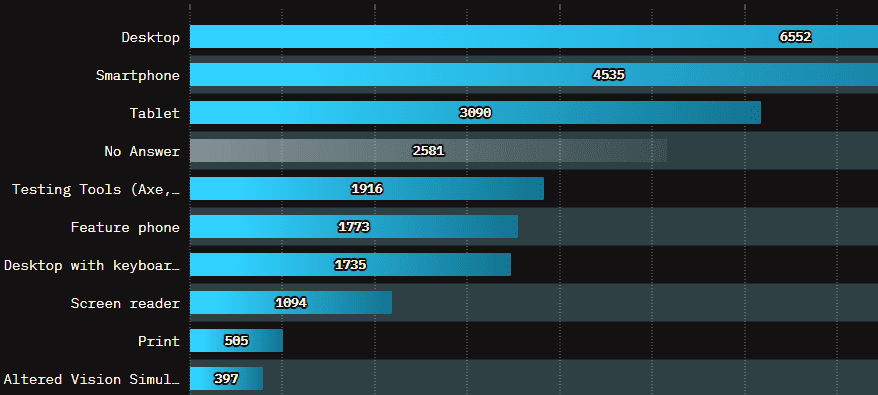
Projects Where CSS Was Used the Most
Web applications are where CSS is most commonly used, according to survey results.
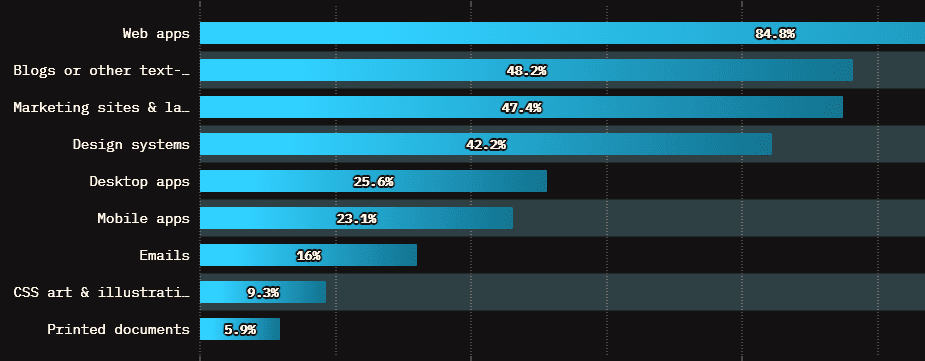
The Industries/ Sectors People Work in Were Just as Varied
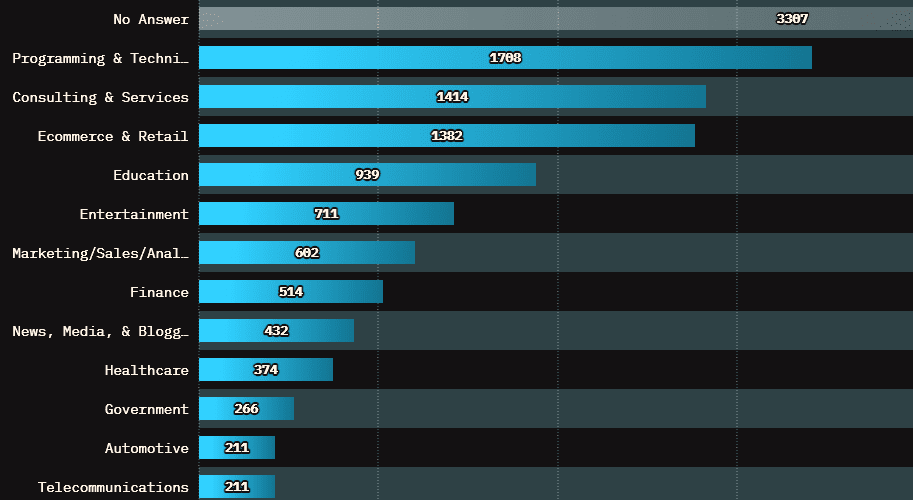
Other “Less Obvious” Sectors Included
| Student | 12.6% |
| Design | 11.4% |
| Art | 9.5% |
| Sports | 6.7% |
| Non-Profit | 4.8% |
| Human Resources | 4% |
| Law | 4% |
| Research | 4% |
| Gaming | 3.2% |
In What Capacity Are People Using CSS?
Professionally: 87.2%
As a hobby: 6.7%
As a student: 6.2%
People Are Learning CSS in a Variety of Ways
The CSS community is more than keen to figure things out for themselves, with self-directed learning coming out on top in the survey.
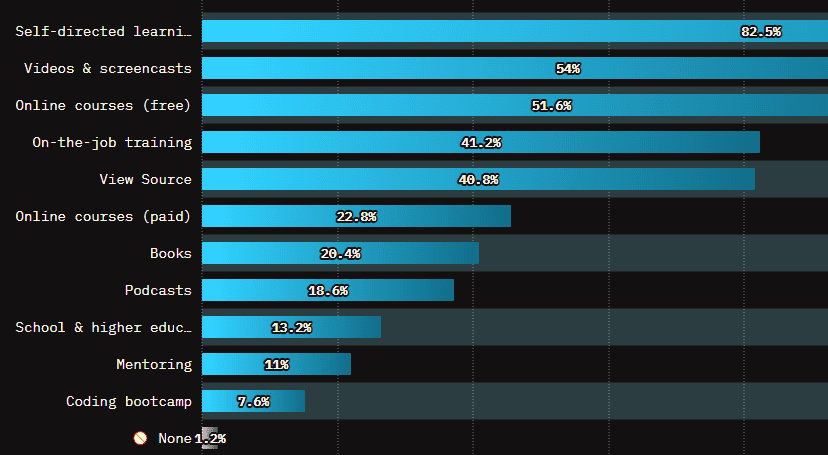
Learn and Master Coding Topics
(Land a Job and Grow Your Technology Career)
Portfolio Website: Create a professional and functional website using HTML, CSS and Javascript (We will teach you these technologies)
Specialist courses in this coding programme include:
HTML. CSS. JavaScript.
Python. Command Line (CMD).
Git & GitHub.
Azure. AWS.
Specialist support to enhance your learning includes:
Personal Career Advisor.
One-to-One Tutor Support.
Personalised feedback on your code.
Dedicated Support Team.
24/7 Course Access.
Flexible and Interest-Free Payments.
Exclusive Tutorials.
Course-Specific Webinars.
Specialist Recruitment Advisor.




